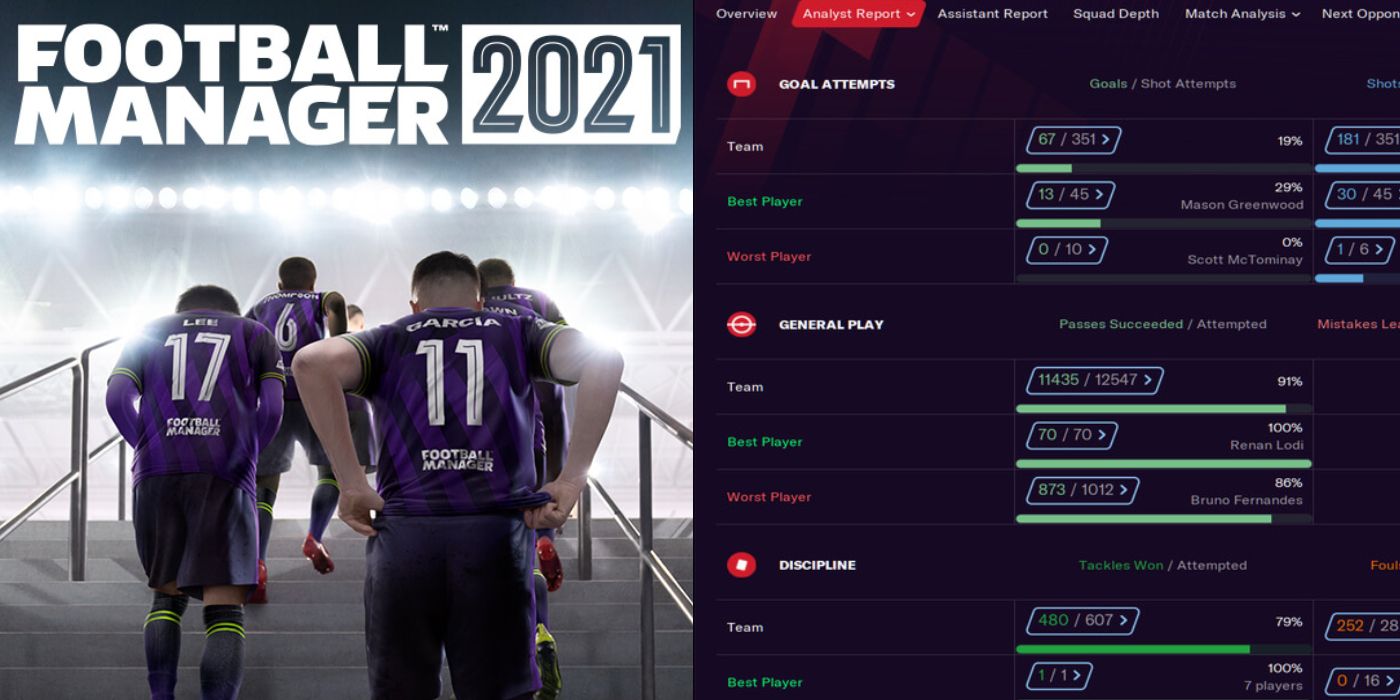
Sega and Sports Interactive's Football Manager series has cemented its place as the top management simulator of the world's most-watched sport. Games like FIFA Manager and LMA Manager have come and gone as they were unable to match Football Manager, which hit the ground running in 2005 after Sports Interactive left the critically acclaimed Championship Manager series.
RELATED: 15 Nintendo Switch Games To Play if You Like Wii Sports
One of the many features that sets the series apart is its in-depth scouting of real players. Sports Interactive's extensive scouting is so impressive, in fact, that in 2009 Premier League side Everton partnered with Sports Interactive to have access to their scouts' full findings.
The continued disappointment over EA's FIFA series is seeing more and more people give the management sim a try. Football Manager is certainly not a game that one can just pick up and play, though, as the reams of information and details that need to be monitored and managed can be overbearing for first-time players. Getting the hang of Football Manager 21 may be tricky, but this list aims to help new players hit the ground running.
Updated April 15, 2021, by Jack Pursey: Football Manager 21 has recently been added to Microsoft's value-for-money Game Pass service, along with other sporting titles like Madden 21 and NBA 2k21, while FIFA 21 and MLB: The Show 21 are scheduled to hit the subscription service soon. Consequently, there has been a whole wave of new players trying the management series out for the first time, undoubtedly sharing the confusion that all gamers have when first trying a Football Manager game. To give these new players some extra help, we've decided to expand this list by a further five entries.
15 Avoid Teams With Unrealistic Targets Or Financial Issues
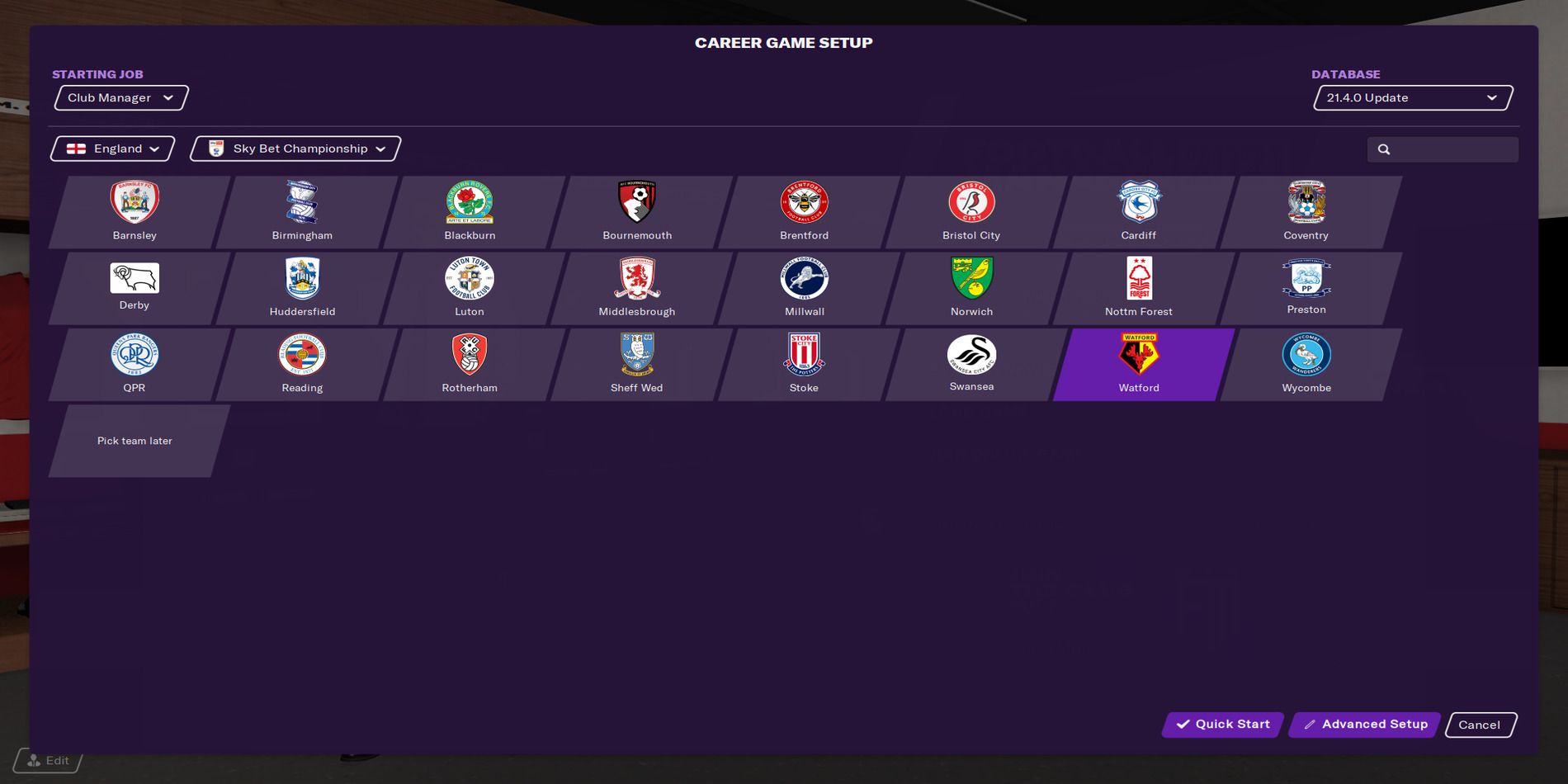
For experienced Football Manager players, selecting a team that is either severely underperforming or has significant financial issues can be one of the most enjoyable and potentially rewarding challenges that the game has to offer.
However, delving into such a difficult task isn't recommended for new players, as the complexities can quickly becoming overbearing, and players will find themselves out of a job before they've even had a chance to get to grips with how to play.
14 Play In A League You're Familiar With
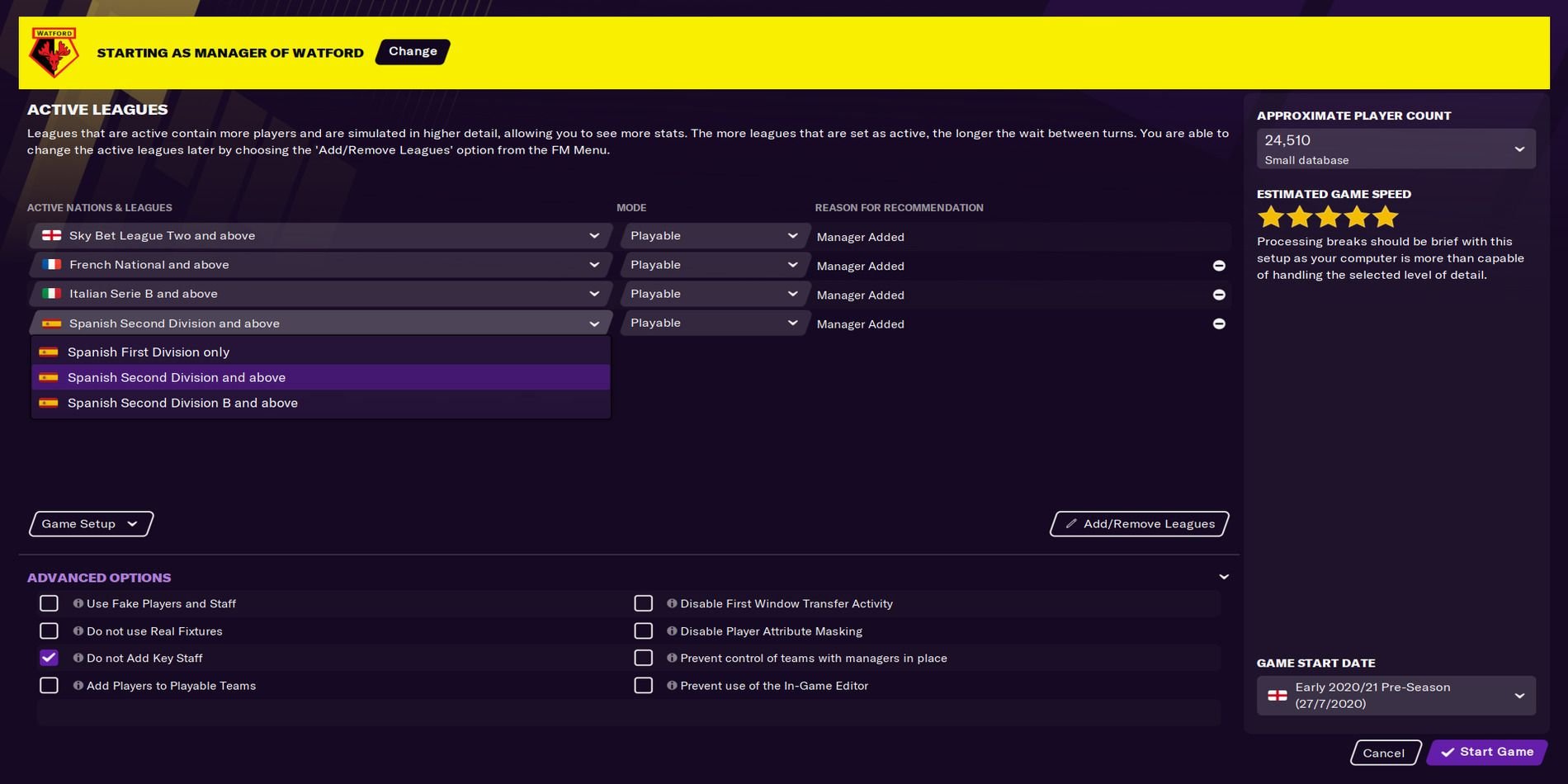
On a similar note to the previous entry, picking a league that players already have pre-existing knowledge of is a great way for them to get started with the game. Not only will it make players more understanding of some of the information being thrown at them, but it will also give them a better idea of how to manage and set up their own team, as well as how best to tactically outclass their opposition.
13 Don't Rush Through The First Season
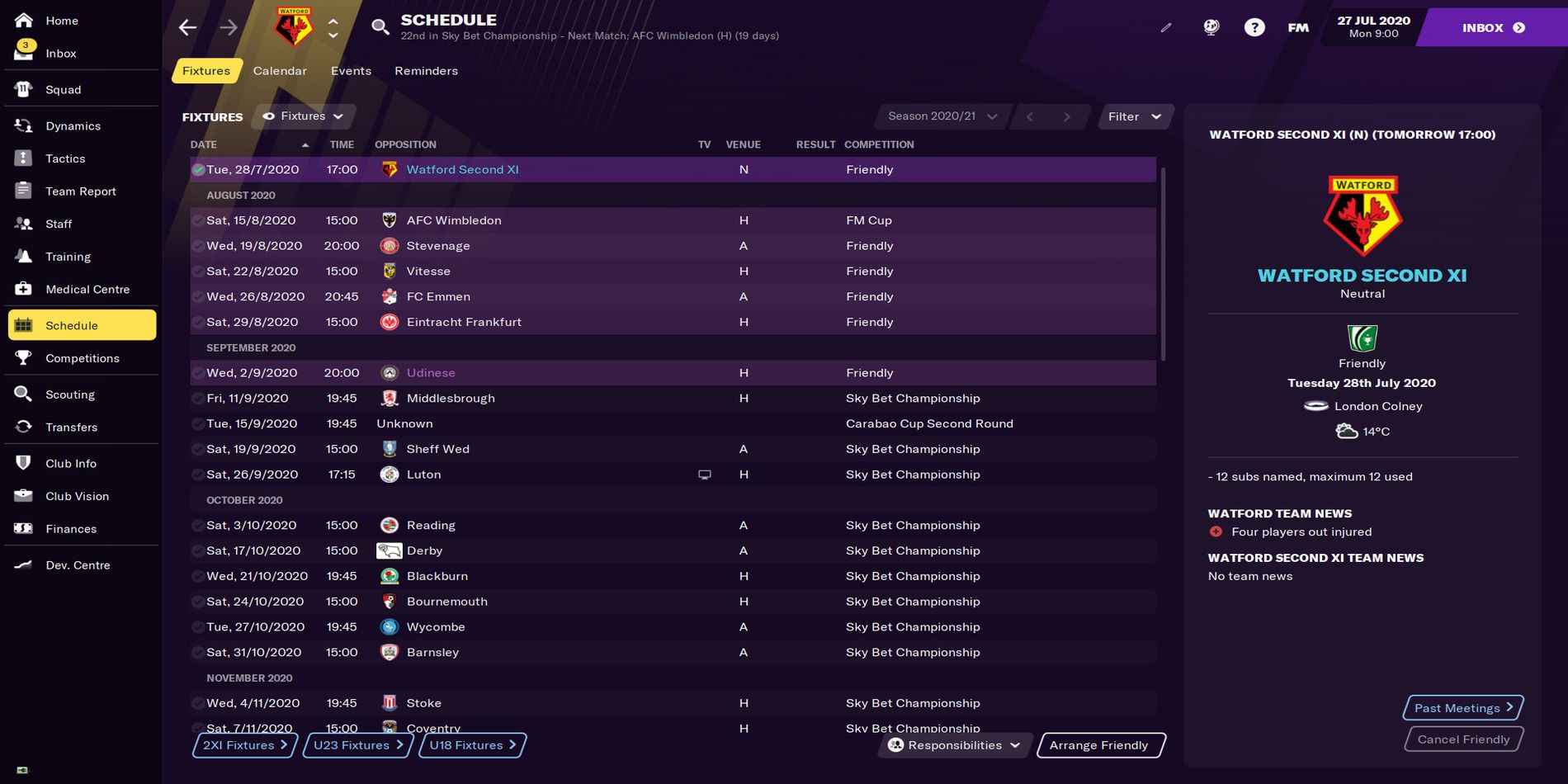
In any sports game, getting to the end of the season is almost always the most exciting part, so consequently, players tend to want to reach it as soon as possible. This is especially the case in Football Manager 21 as the end of the season is when players get to indulge in the transfer market.
However, taking it slow and steady is the best course of action for new players in Football Manager 21. Not only because players will gain a far better understanding of the game, but they're also more likely to be successful due to spending more time looking at the information presented to them through the season.
12 Don't Skip The Tutorials
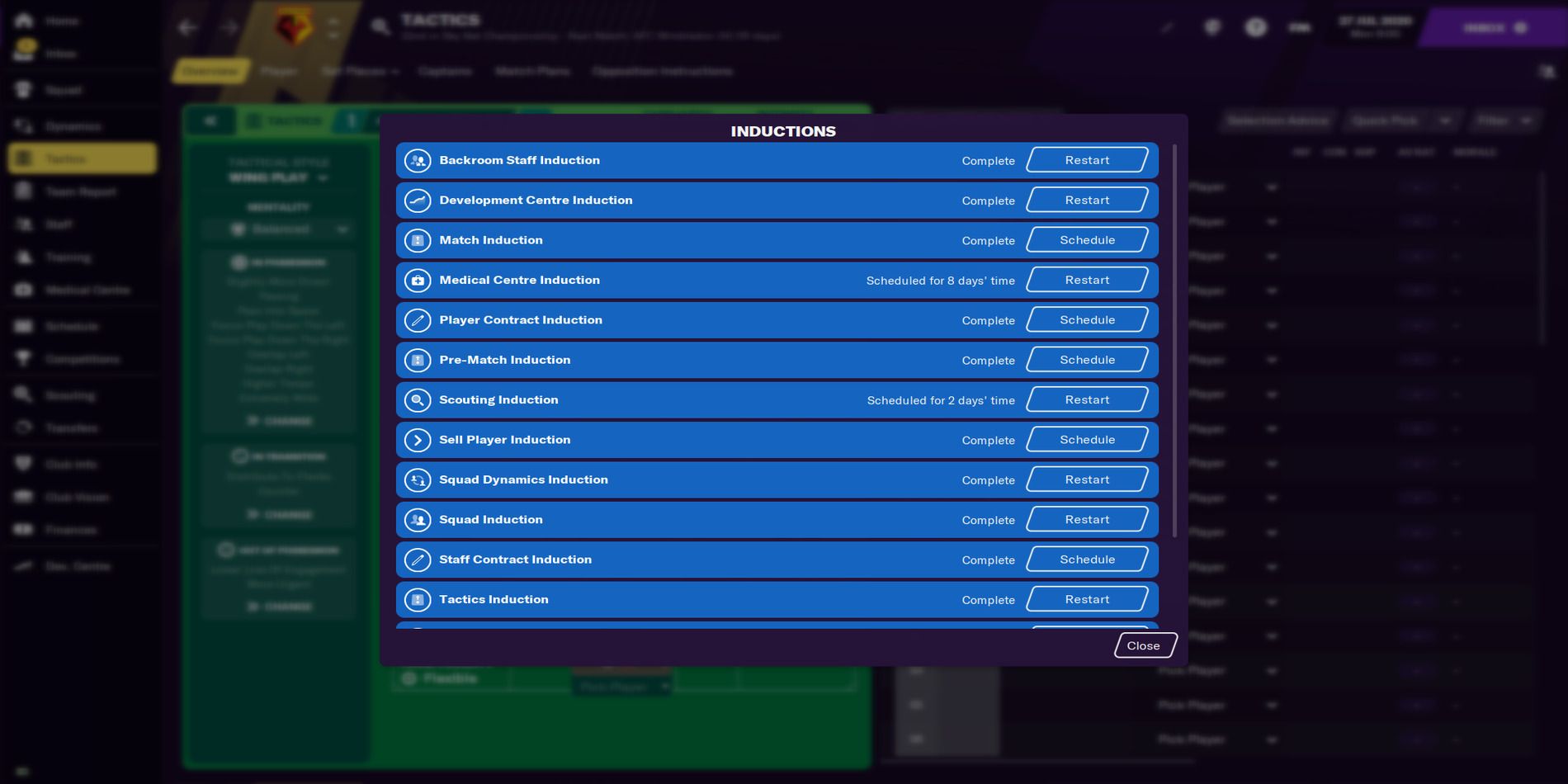
Not skipping tutorials may sound like an obvious piece of advice, though it's worth repeating as the game's tutorials are both plentiful and easy to skip, making it tempting for new players to do so.
RELATED: 10 Richest Clubs In Football Manager 2021, Ranked By How Easy It Is To Succeed With Them
Although it may feel tedious at times, reading every tutorial is certainly worth doing, as it will pay off in the future when players are presented with pages of stats without having a clue where or how to begin dissecting it.
11 Pick A Slow Match Speed
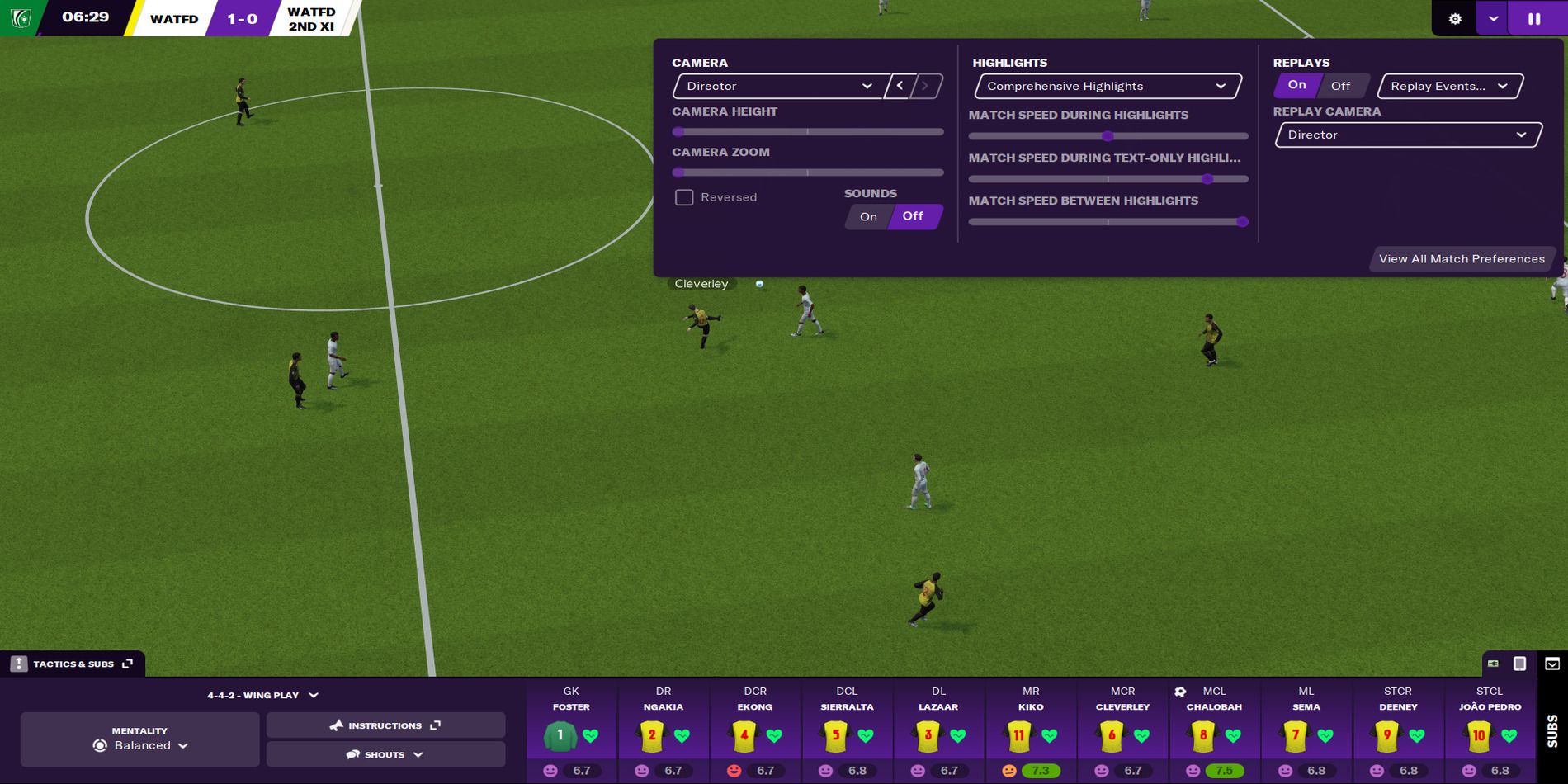
As one would expect in a series that has had as many entries as Football Manager, the latest entry's match options are very fleshed out. It's best that players take things slow with matches when first starting out, as it will give them a chance to understand all of the match-day features.
Moreover, in some versions of the game, there's even an "Instant Result" button which, as the name suggests, stimulates the entire game without players having to lift a finger; it's a handy feature if players have a match they're not interested in, but it should be used sparingly as it will provide very little insight into the match.
10 Utilize Your Staff
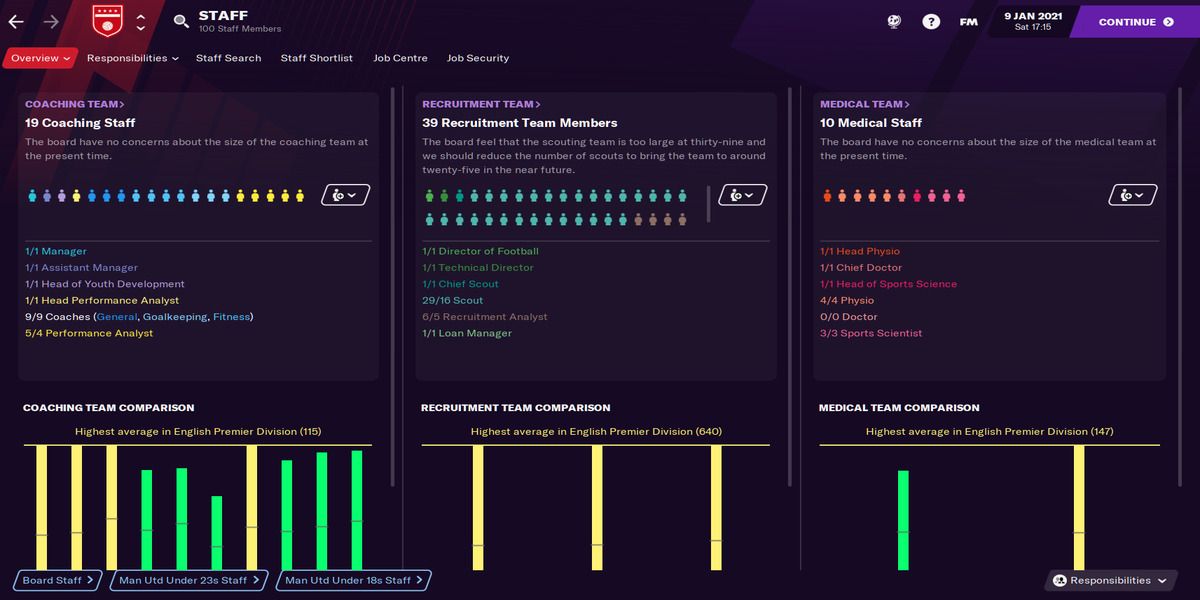
As previously mentioned, as a new player it's easy to become flustered by the numerous amounts of features to manage. Thankfully, you're not alone when it comes to managing your squad, as the support staff are there to help.
Almost all of Football Manager's gameplay mechanics can be delegated to staff. From transfers to player contracts to training to media handling, your staff can control these aspects so that new players can get to grips with the key mechanics of the game before delving into its more complex aspects.
9 Don't Rush Recruitment
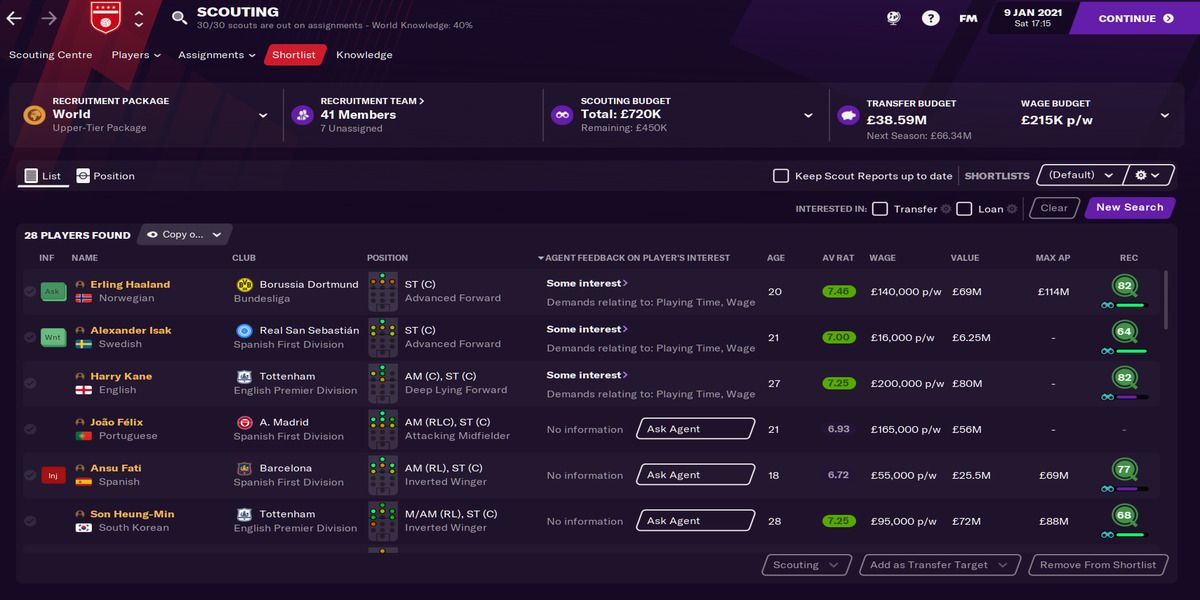
For both new and experienced players, transfers can be the most exciting aspect of Football Manager. Unlike FIFA though, there's far more to consider than just whether or not a player has good attributes.
Does the player fit into your team tactically? Will their personality clash with your squad? Do they have a discipline issue? Do you want them to speak the club's native language? Does the player fit into the board's vision for the club? These are just some of the considerations that you should have when purchasing a new player.
8 Scouting Assignments
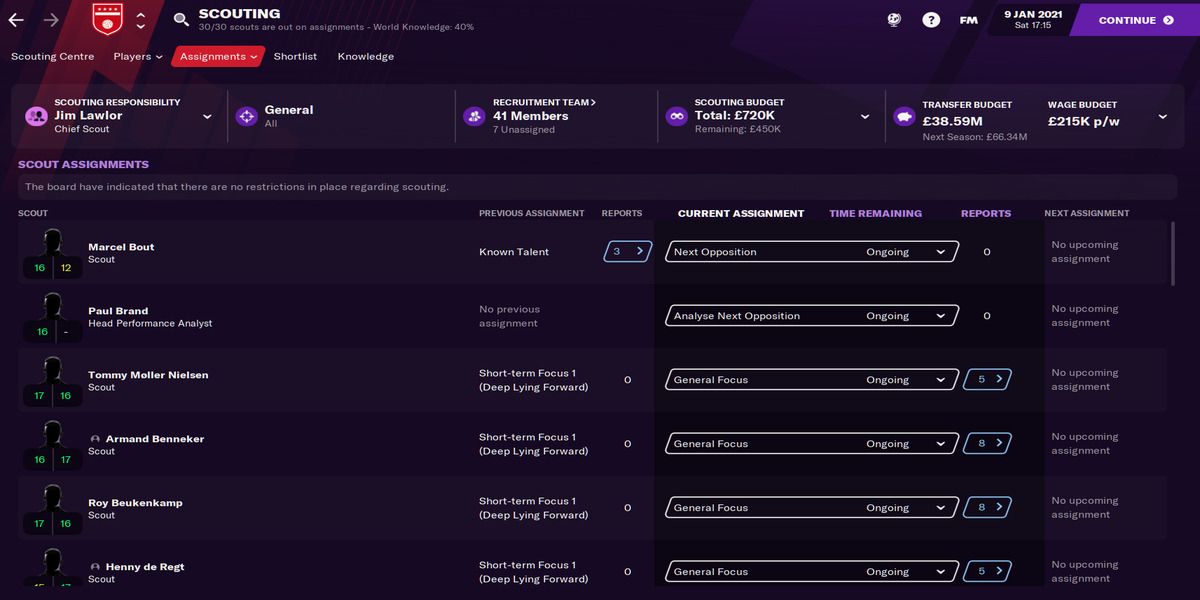
Following on from the previous point, scouting is fundamental to a club's recruitment plans. Unlike in most sports games, Football Manager won't just provide a list of the game's players with all of their stats readily available to look over. There are around 500,000 players in Football Manager, and finding the right one for your team will require extensive scouting.
RELATED: 2K Versus EA: Who Makes Better Sports Games?
Scouts can be assigned to watch certain players, follow a specific team, monitor an entire league, or scout broadly for a specific position and playstyle that you're looking for. Furthermore, scouting is essential for match-preparation as scouts can produce reports on a team's tactical approach.
7 Don't Ignore The Club's Vision
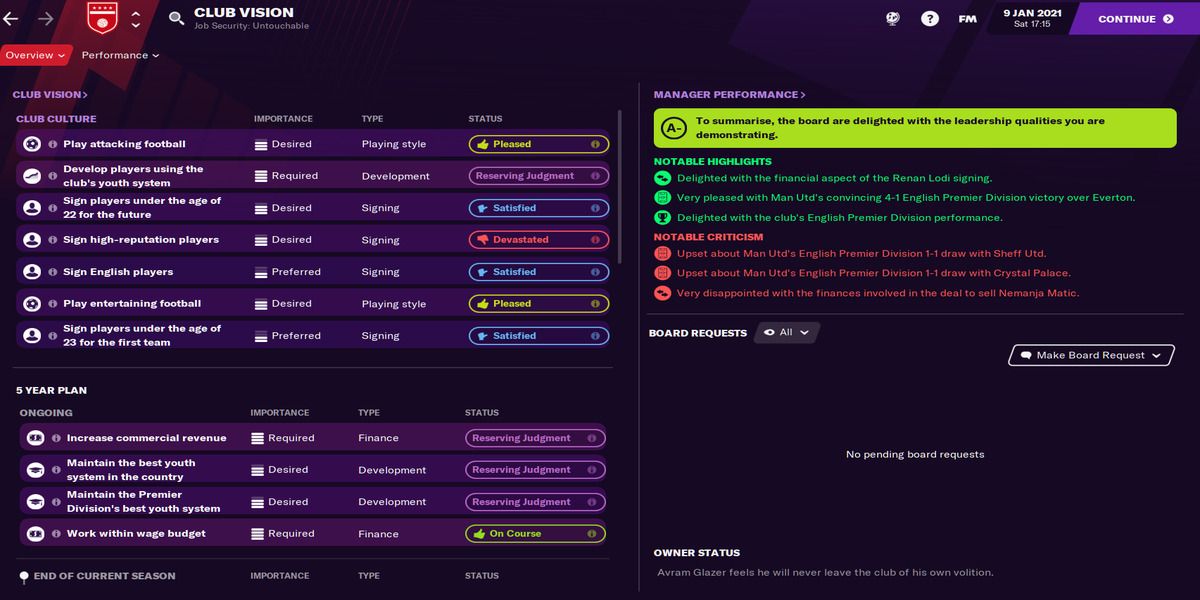
At the start of each season, a senior figure at the club that you manage will lay-out their vision. This vision usually consists of transfer policies, tactical preferences, and expected results for both the short-term and long-term future of the club.
These visions aren't just a general guideline, they're essential for ensuring that your bosses are satisfied with your performance. Not abiding by the club's vision is a risky move as although it will be overlooked if results are going well, these issues will be brought up in meetings when the team is performing badly and it could cost you your job.
6 Individual Training
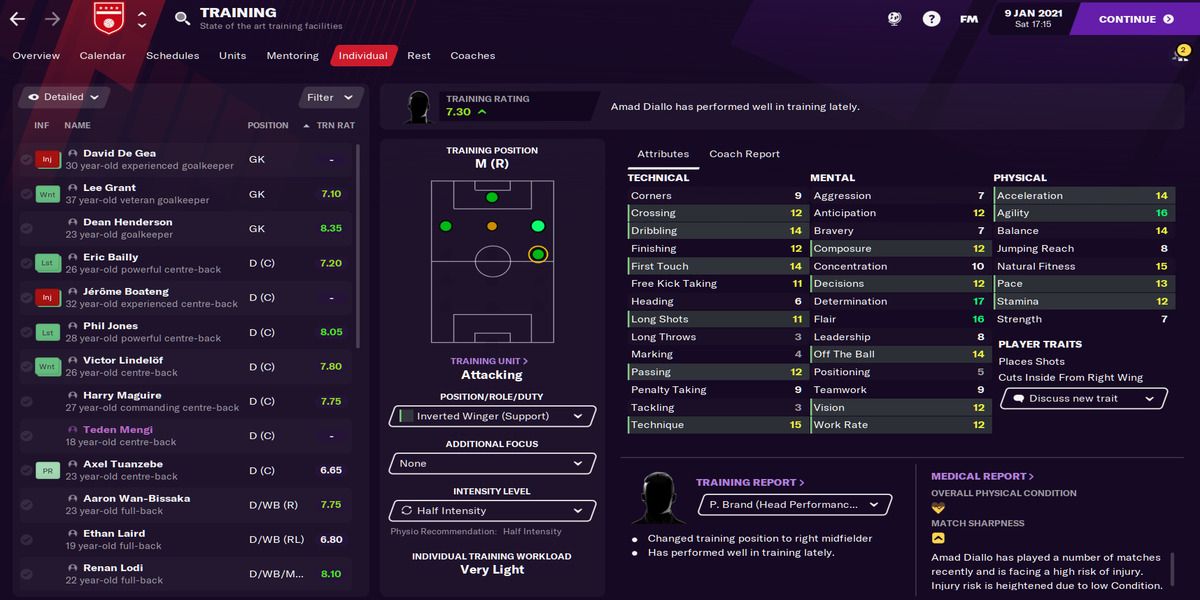
It's all well and good creating and fine-tuning a tactical approach that you like, but if your players aren't suited for it, it's a waste of time. Thankfully, the game's individual training screen allows managers to mold their players into perfect fits for their team.
For example, if you want to play with attacking full-backs that whip crosses in like Jürgen Klopp Liverpool, then you can set your player's role to Wing Back (Attack) and give them an additional focus of crossing. As should be expected in the unforgiving Football Manager series, your player isn't always going to successfully adapt to the desired playstyle, but when they do, it's one of the most rewarding experiences that the game has to offer.
5 Utilize The New (And Old) Stats
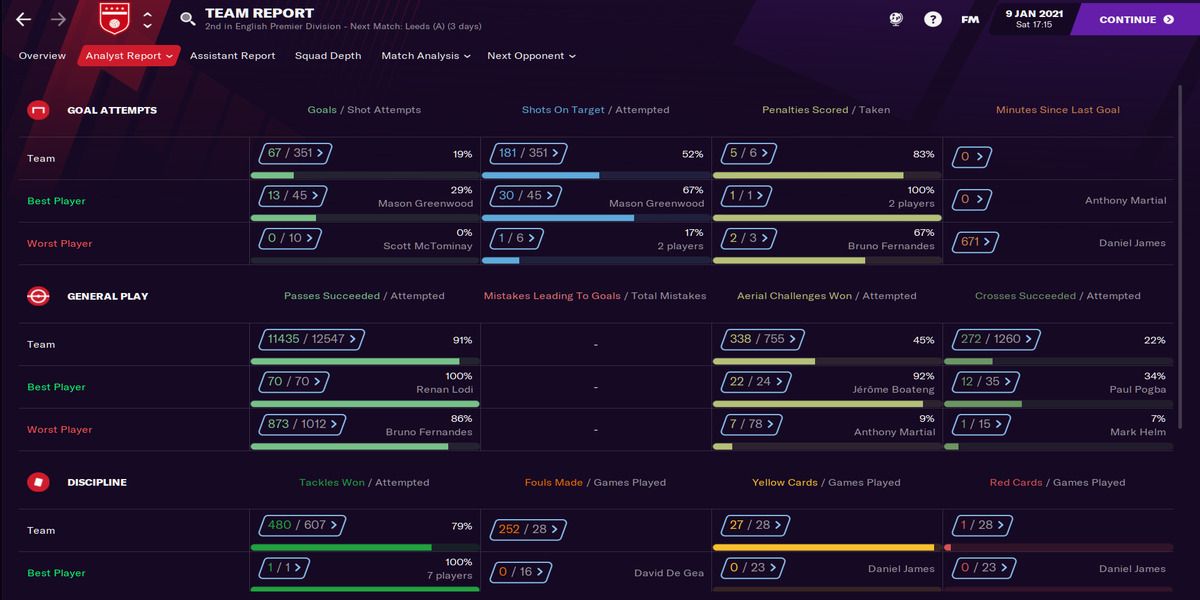
Statistics are a key part of any management sim, especially in the sporting genre, and Football Manager is no different. The game offers player's tons of information for them to sink their teeth into to ensure that they fully understand their team's strengths and weaknesses, as well as helping them prepare for an upcoming match.
RELATED: 5 Best (& 5 Worst) EA Sports Games Of All Time, According To Metacritic
XG is one of Football Manager 21's most notable additions, as it provides an interesting outlook on how your team is performing that may not be reflected in the scoreline. For those who aren't familiar with the up-and-coming metric, Opta Sports provides a good explanation.
4 Don't Overcomplicate Tactics At Lower Divisions
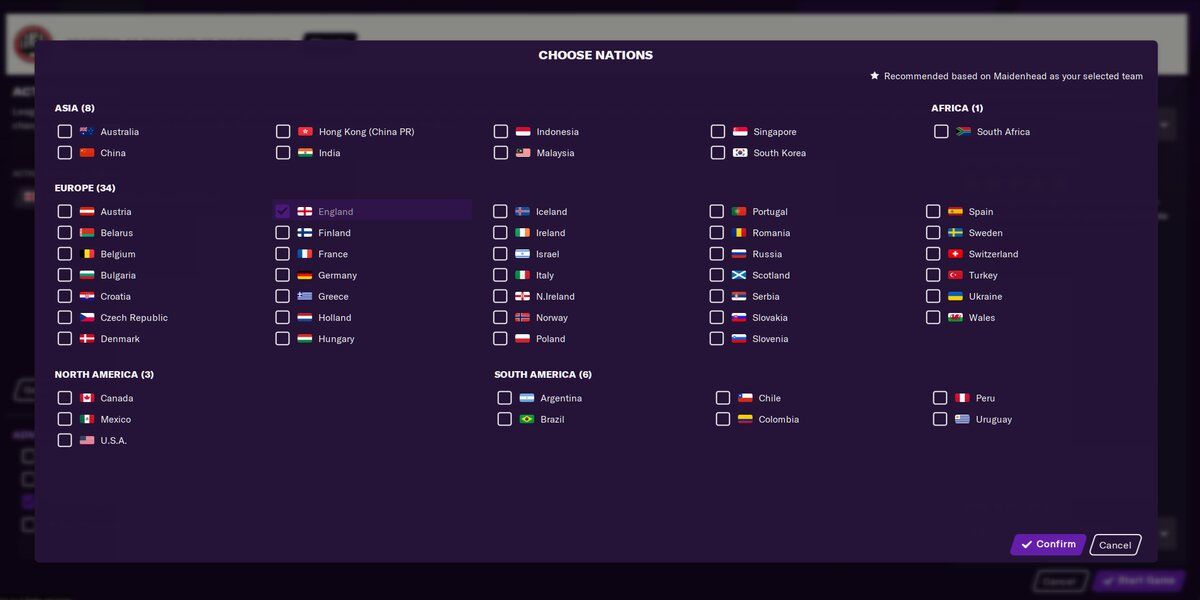
Choosing a tactical approach is one of the most important decisions to make in Football Manager 21. However, it's almost impossible to offer general advice as to how one should set up their team, as there are approximately 1,000 teams available to manage in the game, each with their own specific strengths and weaknesses.
One rule general rule that can be applied for managers of lower league teams though, is not to over-complicate things. For example, charging up through a country's league's using a modern high-intensity Gegenpress system may be tempting, but your players won't have the stamina, nor the technical ability to perform such a demanding system, and it could result in embarrassing scorelines.
3 Be Consistent With Discipline
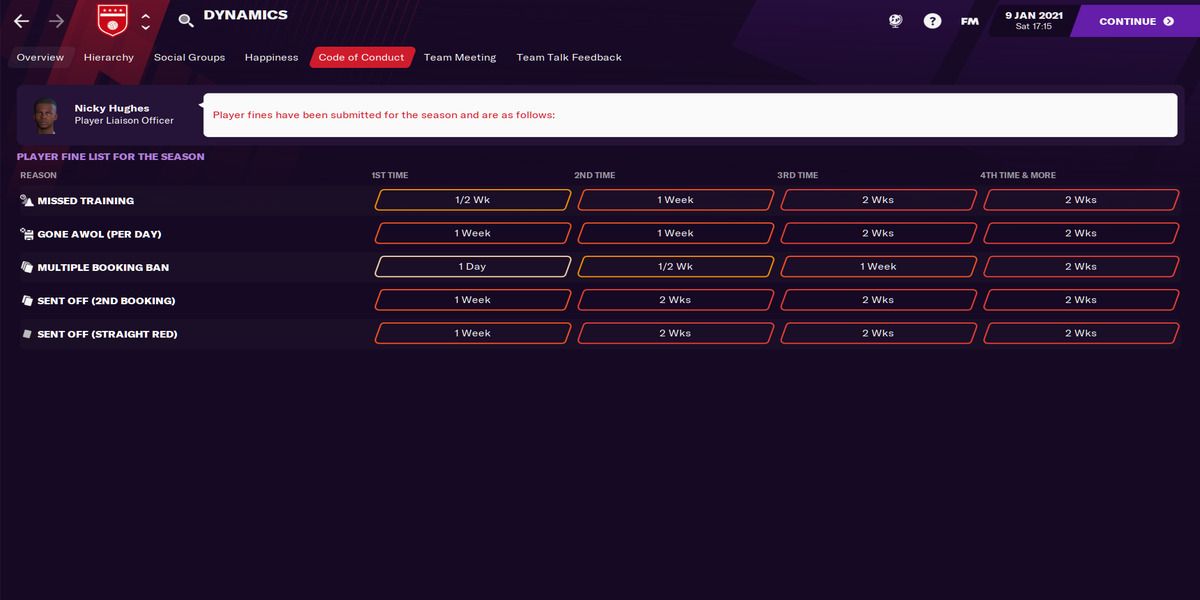
Discipling your players may not be the most enjoyable part of management, but it's essential in ensuring that players respect your position as manager, and don't step out of line too often.
One of the keys to maintaining good discipline is by sticking to a pre-determined fine structure, and being consistent with individual discussions. If two players have been performing badly in training, and you offer one of them encouragement but shout aggressively at the other, it can create a rift in the dressing room or even turn the squad against you.
2 Sometimes You'll Have To Give In
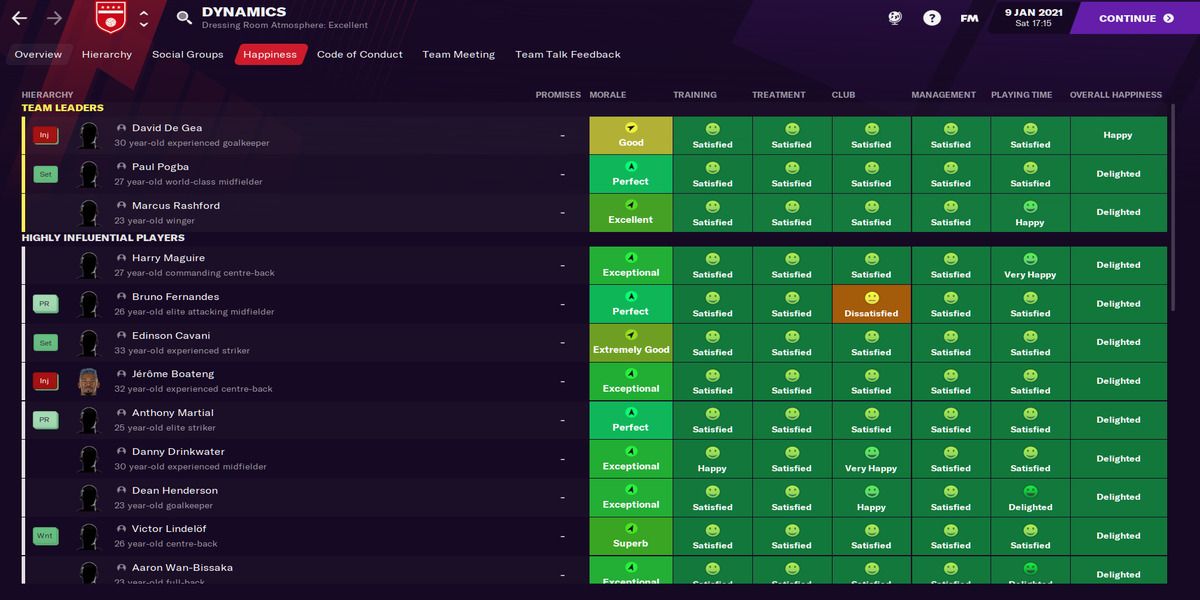
Although keeping a consistent authority over your players is important, there will be times when it's better to back down. If a player wants to leave in FIFA but you decide to keep them it won't really matter, as you control the player in-game. In Football Manager, however, the games are simulated, and a player's unhappiness will often be reflected on the pitch.
Furthermore, an unhappy player who is popular in the dressing room can cause major issues, as if they start bad-mouthing you to their teammates, you can expect the team's league position to nosedive.
1 Don't Panic
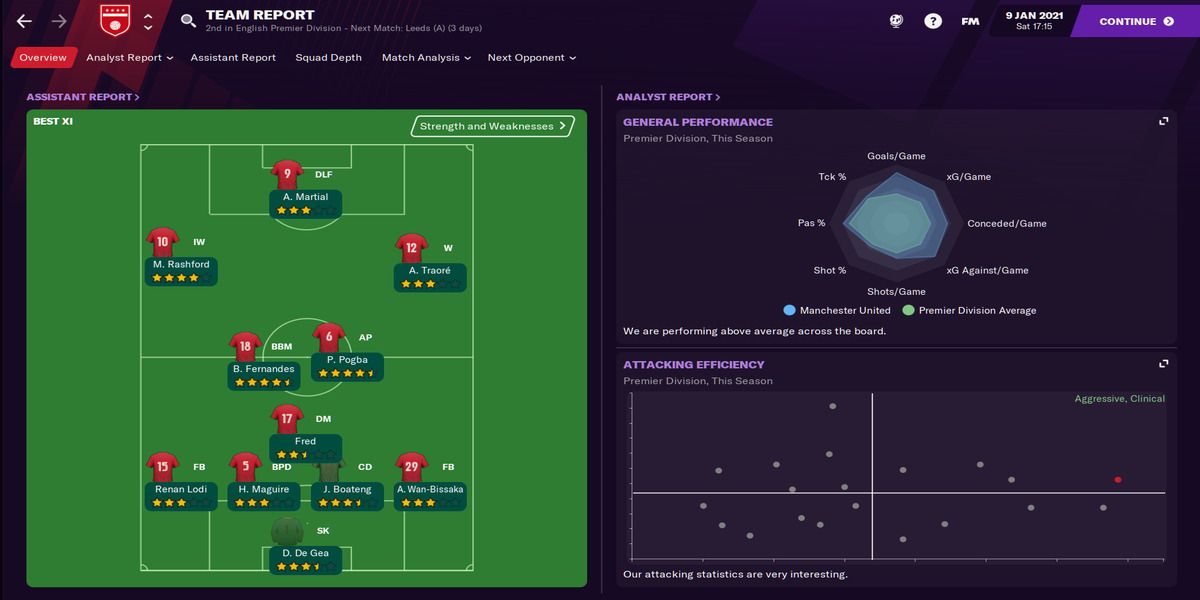
The two most jarring features for new Football Manager players, especially those who are used to playing FIFA, is the fact that they don't control the team during a match, as well as the absence of a difficulty setting.
Because of this, it's easy to become flustered and frustrated when things start going wrong. It's important to know that there's no 'correct' way to play Football Manager, and no tactics are inherently better than others. Panicking when results take a turn for the worse can cause managers to drastically change their tactical approach, which will abolish everything that they have worked to up until that point.
Instead, take the time to analyze every aspect of your team during a poor run of form, as the solution may be in an unexpected place. An unhappy squad, poorly planned training, other teams figuring out your tactical approach, or players being unsuited to the role that is being asked of them are just some of the reasons why a team can get stuck in a rut.
NEXT: 5 Best Retro Sports Games, According To Metacritic (& 5 Worst)

